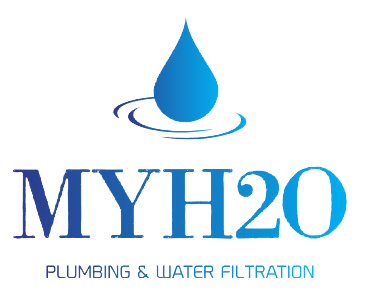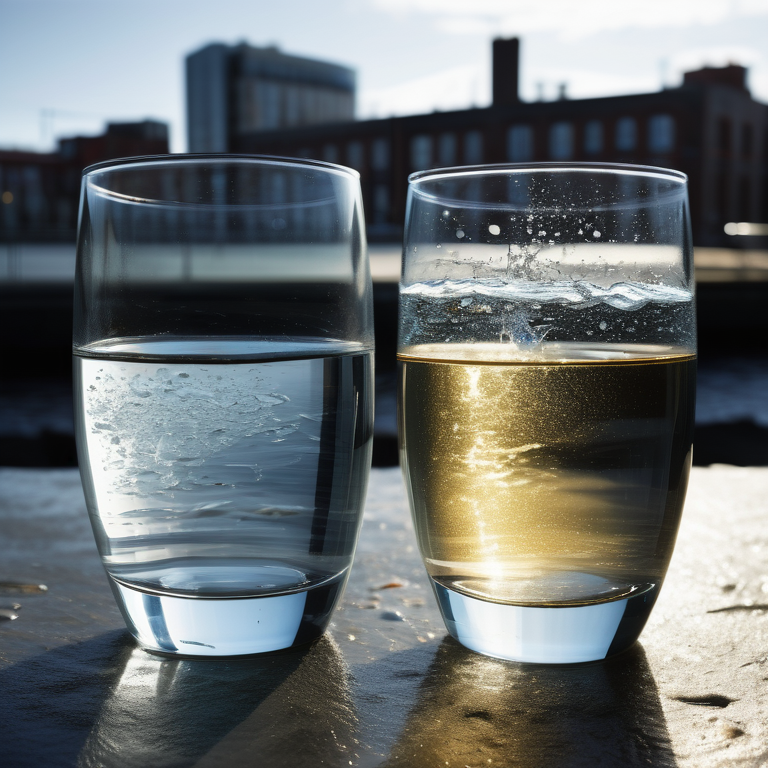Water quality in Dublin is a significant concern, with factors like pollution, agricultural runoff, and ageing infrastructure affecting the supply. Experts emphasise the need for regular monitoring, stricter regulations, and community involvement to safeguard Dublin’s water quality. Collaboration between authorities, industries, and the public is crucial to ensure a sustainable water future for the city.
Key Highlights
- Five Irish beaches, including three in Dublin, have been closed due to poor water quality, highlighting the importance of water quality management in the city. (text table)
- Discharges from wastewater overflows and misconnections are the main issues affecting the water quality at these beaches. (text table)
- The designated bathing season in Ireland is from June 1 to September 15, and ensuring that the water quality is safe for swimmers during this time is crucial. (text table)
- Heavy rainfall can impact bathing water quality, leading to waste water overflows and runoff from urban areas and agricultural lands. (text table)
- The EPA report states that while most bathing waters in Ireland have high water quality, there is a need to build climate resilience into the management of bathing waters to reduce the risk of pollution following heavy rainfall. (text table)
Introduction
Water quality is a crucial aspect of public health, and it plays a significant role in ensuring the well-being of communities. In Dublin, Ireland, the local authorities, along with the Environmental Protection Agency (EPA), are responsible for monitoring and managing water quality to protect public health and the environment. With the recent closure of five beaches due to poor water quality, it is evident that there are challenges in maintaining water quality in Dublin. Expert insights and reports on water quality in Dublin, including updates on beach closures, can be found on the EPA website.
Water quality refers to the chemical, physical, and biological characteristics of water that determine its fitness for specific uses, such as drinking, bathing, or recreational activities. The EPA, as the regulatory body, sets standards for water quality in Ireland and conducts regular monitoring to ensure compliance. Local authorities are responsible for implementing measures to improve and maintain water quality in their respective areas.
Understanding Water Quality in Dublin
In Dublin, the local authorities, in collaboration with the EPA, are committed to ensuring high water quality standards. They monitor various parameters such as bacteria levels, pollutants, and contaminants to assess the water quality in rivers, lakes, and coastal areas. The EPA’s role is to provide guidance, support, and oversight to the local authorities in their efforts to manage water quality effectively. By working together, they aim to protect public health and the environment.
The importance of water quality for public health
Water quality plays an important role in protecting public health as it directly impacts the safety of drinking water and bathing waters. Poor water quality can lead to health risks such as gastrointestinal illnesses, skin infections, and respiratory problems. It is crucial to ensure that the water people consume and come into contact with is free from harmful bacteria, pollutants, and contaminants. Regular monitoring and management of water quality, in accordance with the Bathing Water Quality Regulations of 2008, are necessary to identify and address any potential risks to public health, with proper classification of bathing areas being a crucial aspect of this process. www.myh2o.ie
How water quality is measured in Dublin
In Dublin, water quality is measured through a comprehensive monitoring program conducted by the local authorities under the guidance of the EPA. The program involves regular sampling and analysis of water samples from various sources, including rivers, lakes, and coastal areas. Parameters such as pH levels, dissolved oxygen, bacterial counts, and the presence of pollutants and contaminants are measured to assess the water quality. The data collected is compared to the EPA’s water quality standards to determine compliance. Any deviations from the standards are investigated, and appropriate measures are taken to address the issues and improve water quality. www.myh2o.ie
Key Takeaways on Water Quality
- Water quality management is crucial for safeguarding public health and the environment.
- Poor water quality can lead to health risks, especially when it comes to drinking water and bathing waters.
- Regular monitoring and management of water quality are necessary to ensure compliance with standards.
- Heavy rainfall can impact water quality, leading to waste water overflows and runoff from urban areas and agricultural lands.
- Collaboration between local authorities and the EPA is essential for effective water quality management.
Clearly describing water quality issues and solutions
Water quality issues in Dublin can arise from various sources, such as wastewater overflows, misconnections, pollution from urban areas, and agricultural runoff. These issues can result in contamination of drinking water sources and bathing waters, posing risks to public health. To address these issues, local authorities need to implement measures such as improving wastewater treatment systems, reducing pollution from urban areas, and promoting sustainable agricultural practices. Public awareness campaigns and education about the importance of water quality and its management, especially during wet weather conditions and compared to previous years, are crucial for ensuring long-term solutions. www.myh2o.ie
Summary of current knowledge on Dublin’s water quality
Dublin’s water quality is generally of a high standard, thanks to the efforts of the local authorities and the EPA. Regular monitoring has shown that the majority of rivers, lakes, and coastal areas in Dublin meet or exceed the EPA’s water quality standards. However, there are still areas where improvements are needed, as evidenced by the recent closure of five beaches due to poor water quality, including algal blooms, during the summer months. Ongoing research and monitoring efforts are essential to gain a deeper understanding of Dublin’s water quality, particularly at Front Strand Beach in Balbriggan, and to identify any emerging issues that may require attention.
Known challenges and unknowns in water quality management
Water quality management in Dublin faces several challenges, including the impact of climate change, urbanization, and agricultural practices. Heavy rainfall events can lead to increased pollution incidents, such as waste water overflows and runoff from urban areas and agricultural land, which affect water quality. The exact extent of these challenges and their long-term implications are still unknown, requiring ongoing research and monitoring efforts. Additionally, the effectiveness of various management measures and the potential for emerging pollutants or contaminants in Dublin’s water sources, including those from urban waste water systems, are areas that require further investigation. Continuous collaboration between stakeholders, research institutions, and regulatory bodies is essential to address these challenges and fill the gaps in knowledge.
Factors Affecting Water Quality in Dublin
Several factors contribute to the water quality in Dublin. Natural factors such as geology, climate, and vegetation can influence the composition of water and its suitability for different uses. Human activities, including wastewater discharges, agriculture, industrial processes, and urban development, can also impact water quality through the introduction of pollutants and contaminants. It is crucial to understand and manage these factors to ensure the long-term sustainability of Dublin’s water resources and the protection of public health.
Natural factors influencing water quality
Dublin’s water quality is influenced by various natural factors, including the geology of the region, which can affect the composition and mineral content of the water. For example, areas with limestone geology may have hard water, while areas with granite geology may have soft water. Climate patterns, such as rainfall and temperature, can also impact water quality by influencing the flow of water and the growth of algae and other microorganisms, including the seasonal bloom of Phaeocystis. Vegetation and land cover can affect water quality through the release of organic matter and nutrients. Understanding these natural factors, including the occurrence of blooms, is crucial for managing water quality and ensuring the sustainability of water resources in Dublin. www.myh2o.ie
Human activities impacting water quality
Human activities have a significant impact on water quality in Dublin. Wastewater discharges from residential, commercial, and industrial sources can introduce pollutants and contaminants into water bodies, affecting their quality. Agricultural practices, such as the use of fertilizers and the management of livestock waste, can lead to the runoff of nutrients and pesticides into rivers and lakes, causing water pollution. Urban development and construction activities can result in the erosion of sediments and the release of pollutants into water bodies. Effective management of these human activities, including improved wastewater treatment, sustainable agriculture practices, and stormwater management, is essential for protecting water quality in Dublin. www.myh2o.ie
www.myh2o.ie: Your Go-To Resource
www.myh2o.ie is a valuable resource for residents of Dublin and anyone interested in water quality. The website provides comprehensive products and installers who can improve water quality, including reports, data, and updates on the status of water sources in Dublin. It also offers educational materials and resources to help individuals understand the importance of water quality and how they can contribute to its protection.
How www.myh2o.ie is leading the charge for better water
www.myh2o.ie is at the forefront of efforts to improve water quality in Dublin. The website provides a user-friendly interface where individuals can access up-to-date information on water quality soluctions, including reports on monitoring results and any emerging issues. It help users understand and interpret the information required to get the best water quality through their solutions. Myh2o.ie aims to empower individuals to make informed decisions about water use and quality. By promoting public awareness and consumer engagement in what we offer, www.myh2o.ie is leading the charge for better water quality in Dublin.
Services and information available on www.myh2o.ie
Www.myh2o.ie provides a wide range of services and information related to water quality in Dublin. Users can access the latest water quality solutions for their water supply zone by entering reach out to the Myh2o team. Educational materials, such as articles and videos, are available to help users understand key concepts related to water quality and its management. Additionally, www.myh2o.ie provides updates on ongoing research and initiatives aimed at improving water quality in Dublin. The website serves as a valuable resource for individuals looking for the best water quality solutions.
Water Quality Initiatives and Success Stories
Water quality initiatives and success stories play a crucial role in enhancing water quality in Dublin. The EPA and local authorities have been working together to improve water quality through various measures. These initiatives include monitoring and testing water quality, implementing pollution control measures, and raising awareness among the public about the importance of water quality. The success stories in Dublin highlight the positive impact of these initiatives, with many beaches consistently meeting or exceeding the minimum required standard for water quality. These efforts demonstrate the commitment of the government and the community to ensuring clean and safe water for everyone. www.myh2o.ie
Government and community initiatives improving water quality
Both the government and the community in Dublin have been actively involved in initiatives to improve water quality. The government has implemented policies and regulations to protect water sources and prevent water pollution. They have also invested in infrastructure upgrades to reduce wastewater overflows and improve water treatment processes. Local authorities have been working closely with the Environmental Protection Agency (EPA) to monitor and assess water quality in Dublin’s beaches and lakes. Community initiatives, such as beach clean-ups and educational campaigns, have also played a significant role in raising awareness about the importance of water quality and encouraging responsible water usage. These combined efforts have led to noticeable improvements in water quality and have contributed to the overall well-being of the environment and the community.
Case studies of successful water quality improvement in Dublin
Several case studies in Dublin highlight successful water quality improvement efforts. One such case study is the improvement of water quality at Sandymount Strand. Through a collaborative approach between the local community, government agencies, and the EPA, pollution sources were identified and addressed. Measures were taken to reduce pollution from contaminated streams, misconnections, sewage discharges, and animal waste. As a result, water quality at Sandymount Strand improved significantly, making it safe for swimming and other recreational activities. Another case study is the successful management of wastewater overflows in Dublin City. The implementation of infrastructure upgrades and the development of a comprehensive monitoring system have helped reduce the frequency and impact of wastewater overflows, leading to improved water quality in Dublin’s water bodies. These case studies demonstrate the effectiveness of targeted interventions and collaboration in achieving sustainable improvements in water quality. www.myh2o.ie
Preventative Measures for Maintaining Water Quality
Preventative measures are crucial for maintaining water quality in Dublin. These measures include regular monitoring and testing of water sources, implementing pollution control measures, and promoting responsible water usage. It is important for households to properly dispose of waste, especially chemicals and pharmaceuticals, to prevent contamination of water sources. Additionally, the use of environmentally-friendly cleaning products and proper maintenance of septic tanks can contribute to better water quality. Education and awareness campaigns also play a key role in encouraging the public to adopt water-saving practices and reduce pollution. By implementing these preventative measures, Dublin can ensure the long-term sustainability and quality of its water resources.
Best practices for households to maintain water quality
Households play a vital role in maintaining water quality in Dublin. There are several best practices that individuals can adopt to contribute to better water quality. Firstly, it is important to properly dispose of household waste, such as chemicals, pharmaceuticals, and cleaning products, to prevent contamination of water sources. Secondly, regular maintenance of septic tanks and proper disposal of sewage is crucial to prevent the release of harmful substances into the environment. Additionally, households can reduce water usage by fixing leaks, using water-efficient appliances, and practicing water-saving habits. Finally, raising awareness among family members about the importance of water quality and the impact of their actions can lead to more responsible water usage practices. By following these best practices, households can contribute to the overall improvement of water quality in Dublin. www.myh2o.ie
Policies and regulations aiding water quality preservation
Policies and regulations play a significant role in aiding water quality preservation in Dublin. The government has implemented various measures to protect water sources and prevent water pollution. This includes strict regulations on wastewater treatment and discharge, as well as monitoring and enforcement activities carried out by regulatory agencies such as the EPA. The implementation of these policies and regulations ensures that water sources in Dublin are safeguarded and that water quality is maintained at a high standard. In addition, initiatives such as the Water Framework Directive provide a framework for integrated water resource management, aiming to achieve good water quality and sustainable water use. Through the enforcement of these policies and regulations, Dublin can continue to preserve and protect its water resources for future generations. www.myh2o.ie
Conclusion
Water quality in Dublin is a crucial aspect that directly impacts public health and environmental sustainability. By understanding the significance of maintaining clean water sources and implementing best practices, we can ensure a safe and healthy future for generations to come. Initiatives like www.myh2o.ie play a vital role in monitoring and improving water quality, offering valuable resources and information to the community. Together, through collaborative efforts and adherence to regulations, we can address challenges, prevent pollution, and safeguard our water sources for a healthier Dublin. www.myh2o.ie
Frequently Asked Questions
What are the common causes of water pollution in Dublin?
Common causes of water pollution in Dublin include wastewater overflows, pollution from urban areas, and contamination from industrial activities. These factors can introduce harmful substances and pollutants into water sources, compromising water quality and posing risks to the environment and public health.
How can individuals contribute to improving water quality?
Individuals can contribute to improving water quality by adopting best practices such as proper waste disposal, water conservation, and responsible chemical use. It is also important to support and participate in initiatives led by organizations like the Environmental Protection Agency (EPA) that focus on water quality improvement.
What steps are being taken by the government to enhance water quality?
The government is taking several steps to enhance water quality in Dublin. This includes implementing policies and regulations on wastewater treatment and discharge, investing in infrastructure upgrades, and collaborating with local authorities and organizations to monitor and improve water quality.
How does www.myh2o.ie help in monitoring water quality?
www.myh2o.ie is a website that provides products and services related to improving water quality in Ireland. It allows users to access information required and solution measures to take to improve their water quality.
Can water quality impact my health?
Yes, water quality can impact your health. Poor water quality can contain harmful bacteria, chemicals, or pollutants that can pose risks to public health. It is important to ensure that the water you consume or come into contact with is of good quality to prevent health issues.



